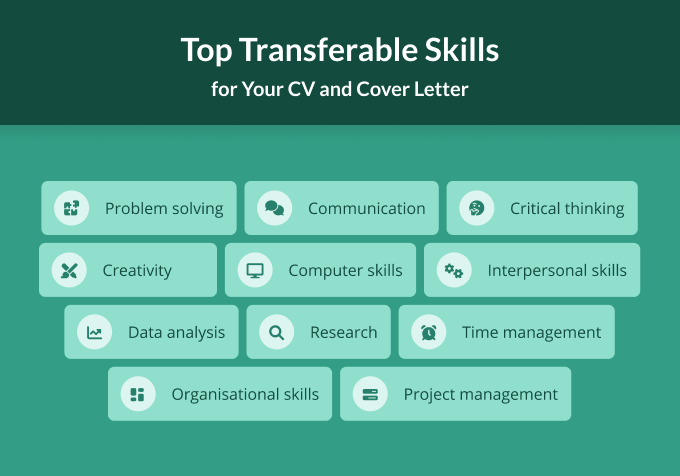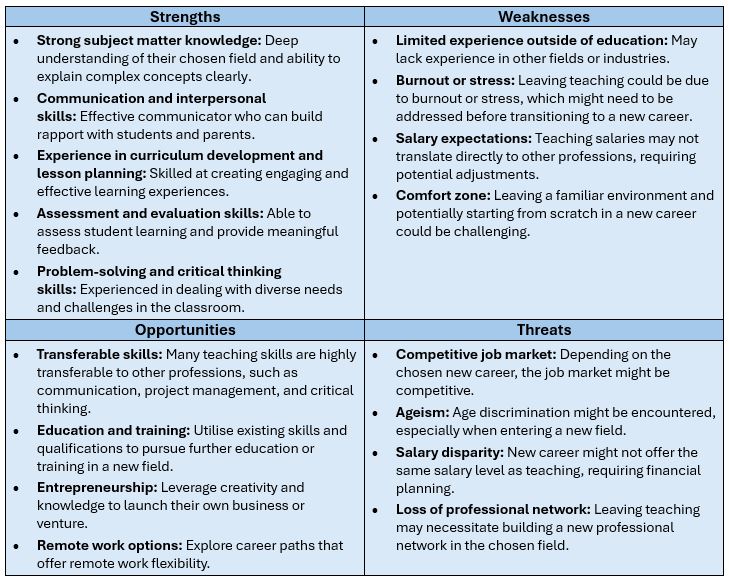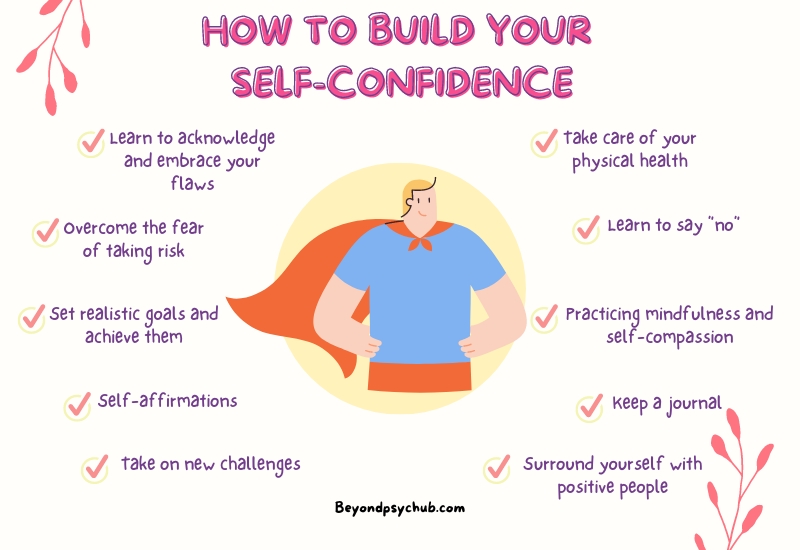
The Power of Transferable Skills: Making a Successful Career Change

Making a career switch can feel intimidating, especially when it seems like you’re starting from scratch. But here’s the good news: you don’t have to begin again from zero. You already have valuable, transferable skills that can be applied to new roles, industries, or challenges. These skills are the foundation for successfully navigating a career change and standing out in your job search.
What Are Transferable Skills?

Transferable skills are those abilities you’ve developed in one role or industry that can be applied to another. These skills can be both hard skills (technical, quantifiable abilities) and soft skills (personal traits and interpersonal abilities). Whether you’ve gained experience in leadership, customer service, or software proficiency, these skills can be leveraged in a variety of contexts.
For example, the ability to manage a project, work within a team, or communicate effectively are all transferable skills that can be utilized across different jobs and industries. While your previous role may not perfectly align with your desired position, the core skills you’ve developed will be directly applicable to the next opportunity.
Examples of Transferable Skills:

- Communication Skills: Whether it’s public speaking, writing reports, or handling customer inquiries, communication is essential in nearly every role.
- Leadership Skills: Project management, team leadership, mentoring, and change management are all valuable across industries.
- Technical Skills: Proficiency with software like Microsoft Excel, CRM tools like Salesforce, or content management systems (e.g., WordPress) can be used in various fields.
- Problem-Solving and Critical Thinking: Identifying challenges and finding creative solutions is a universal skill applicable in virtually any industry.
- Adaptability: Being able to quickly learn new skills, adjust to changing circumstances, or shift priorities is vital in a fast-paced job market.
How Transferable Skills Can Aid Your Career Change

Whether you’re switching from sales to marketing, moving from healthcare to IT, or looking to transition from one leadership position to another, identifying your transferable skills is key to your success. Recognizing and showcasing these skills will enable you to bridge the gap between your current experience and the role you’re seeking.
For example, someone moving from a customer service role to a project management position can highlight their ability to handle client requests, manage multiple priorities, and communicate effectively with diverse teams. They may not have direct experience in project management, but their background in customer service can be highly relevant.
How to Identify Your Transferable Skills

To identify your transferable skills, begin by reviewing job descriptions for positions you’re interested in. Look at the skills and qualifications that appear frequently and compare them to your current skillset. What skills from your previous roles align with these requirements?
Additionally, take time to reflect on past experiences, whether they’re from previous jobs, volunteer work, or even hobbies. Leadership in community events, teaching others, or organizing a large family event are all experiences that build valuable skills.
How to Highlight Transferable Skills in Your Job Search

Once you’ve identified your transferable skills, it’s time to showcase them effectively throughout your job search. Here are some strategies for doing that:
- On Your Resume:
- Include a dedicated “Skills” section that highlights both hard and soft skills that are relevant to the role you’re applying for.
- Customize your resume to match the specific job description by using keywords and aligning your skills with the job requirements.
- Consider using a functional or combination resume format if you’re changing careers, allowing you to emphasize your skills rather than job history.
- In Your Cover Letter:
- Your cover letter is an excellent place to explain how your transferable skills will benefit the company in the new role.
- Be specific about how your experience aligns with the job. Instead of stating, “I have excellent communication skills,” give an example of a time you successfully communicated with clients, leading to a successful project or customer satisfaction.
- During Interviews:
- Prepare to discuss your transferable skills with concrete examples that demonstrate how your experience will help you excel in the new role.
- Practice talking about your career change journey and how the skills you’ve developed have prepared you for this new challenge.
- On LinkedIn:
- Add transferable skills in your LinkedIn profile’s “Skills” section. This section is searchable, making it easier for recruiters to find you.
- Your LinkedIn headline and summary should reflect your skills and the direction you want to take your career. This helps employers understand your career goals and expertise.
Be Confident with Imperfection

As you move into a new role or industry, it’s important to recognize that no one is perfect. You don’t need to have every qualification outlined in the job description. Instead, focus on what you do bring to the table and be confident in your ability to learn and adapt. Employers value candidates who are eager to take on challenges and are willing to grow with the role.
If asked about gaps in your experience, acknowledge them with confidence and relate them to the transferable skills you do have. For instance, you might say, “While I don’t have direct experience in project management, I’ve led cross-functional teams and have successfully handled deadlines and responsibilities similar to what is required in this role. I’m excited to learn more about formal project management methods and apply my existing leadership experience.”
FAQs
1. What are transferable skills?
Transferable skills are abilities you’ve developed in one role or industry that are applicable to others. These can be hard skills (like software proficiency) or soft skills (like communication and problem-solving).
2. How do I identify my transferable skills?
To identify your transferable skills, review job descriptions for roles you’re interested in and compare them with your past experience. Reflect on your accomplishments in current or past positions and consider which skills could be relevant to your new career.
3. Can transferable skills help me change careers entirely?
Yes, transferable skills are especially important when changing careers. They demonstrate how your previous experience is relevant to your new role, even if the industries are different.
4. How do I highlight transferable skills on my resume?
Include a “Skills” section on your resume, emphasizing your transferable skills. Customize your resume to match the job description by using relevant keywords and examples that show how your skills align with the job requirements.
5. What should I do if I don’t have all the required skills for a new role?
It’s okay to not have every skill listed. Focus on the skills you do have and demonstrate your enthusiasm and ability to quickly learn new concepts. Show confidence in how your current skills will enable you to adapt to the role.
6. Should I use my transferable skills in my cover letter?
Absolutely! Your cover letter is the perfect place to explain how your transferable skills will benefit the company. Be specific about how your experience aligns with the job requirements and use concrete examples.
Conclusion: Leverage Your Transferable Skills to Make a Career Change
Making a career change doesn’t mean starting over—it’s about applying the skills you’ve already developed in a new context. Your experience, even from unrelated roles, is valuable, and with the right mindset and approach, you can effectively transfer those skills to the next opportunity.
By identifying your transferable skills and effectively showcasing them on your resume, in your cover letter, and during interviews, you’ll be well on your way to a successful career transition. The more you focus on what you’ve accomplished and how it applies to the new role, the more confidence you’ll have in your ability to succeed in your new career path.

